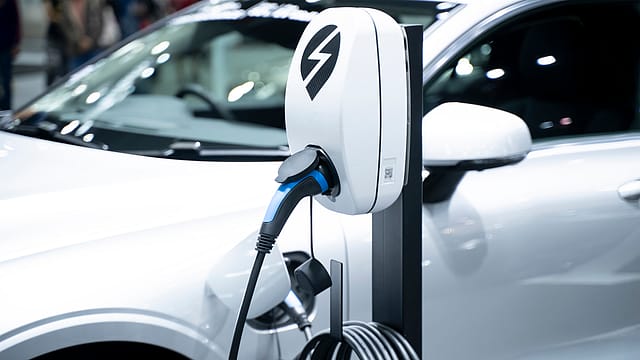Budget 2024: Start-ups bat for GST cut on lithium-ion battery waste
ADVERTISEMENT

To accelerate India's clean energy transition and build a circular economy, battery recycling startup Lohum expects the government to reduce the goods and services tax (GST) on waste lithium-ion batteries from 18% to 5%.
"GST on waste Lead Acid Batteries is 5% (e-waste). Lithium Ion Batteries (LIBs) should also be included in chapter 85 of GST and taxed at 5%," says Rajat Verma, CEO and founder of Lohum Cleantech.
Agrees Akshit Bansal, CEO and founder of charge point operator Statiq. "Circular economy measures should also find a prominent place in the budget, promoting recycling, waste reduction, and the use of eco-friendly materials in manufacturing," Bansal says.
Lohum's Verma is also expecting a reduction of GST on processed ores of Nickel and Cobalt from 18% to 5%. "Pre 2021, GST on them was 5%. Further, it increased to 18% to remove the inverted duty structure in the mining industry. But India has no reserves of Nickel and Cobalt, hence no mining either. Thus, rationalisation on Nickel and Cobalt serves no purpose, It should be revoked back to 5%," Verma says, adding that custom Duty on Cobalt and Nickel ores and concentrates should be decreased from 2.5% to 0%.
India is mostly dependent on China when it comes to critical rare earth minerals like cobalt, lithium and nickel. Lohum produces these materials via recycling and converts them into battery grade.
"Materials which are needed to transition to clean energy are geostrategic in nature. They are limited to certain geographies in the world and China has a huge monopoly in manufacturing those materials," says Verma.
"Last year's Union Budget provided vital stimulus for India's Energy Transition fuelled by an expenditure of ₹35,000 crore. To promote clean energy and sustainable growth, we saw priority capital investment towards energy transition, provision for inter-state grid integration, viability gap funding for battery energy storage systems, indirect tax revisions encouraging green energy, and more such measures," he says.
Verma further urges the Centre to reduce GST on lithium-ion batteries from 18% to 5%. GST on electric vehicles is already 5%, so 18% on lithium-ion batteries is creating an inverted duty structure, he says.
The continuation of the Faster Adoption and Manufacturing of Hybrid and Electric Vehicles (FAME) scheme for the next five years, extending beyond its current schedule till March, is essential, according to Bansal. "This extension is vital for maintaining upfront price parity for EVs compared to Internal Combustion Engine vehicles, ensuring sustained EV adoption momentum and protecting investments in the sector. FAME III will be crucial to bridge the price gap, sustaining interest in EVs, and contributing to pollution reduction and fuel security. These concerted efforts will not only advance the EV industry but also make substantial contributions to creating a cleaner and more sustainable automotive future in India," Bansal says.
Verma also anticipates the extension of the FAME scheme to FAME 3, and a comprehensive scheme for manufacturing, refining, recycling, and midstream processing of critical materials.
Mayank Thatte, chief financial officer of digital lending platform Rupyy, expects more "well-defined action plans" from the Interim Budget to strengthen digital infrastructure. "More robust and long term and clearly defined incentives for the adoption of EVs will also help in the growth of the auto finance sector. The inclusion of EV financing as a priority sector lending shall help and translate to lower cost and increase adoption," Thatte says.
"We are aligned with the growth potential of the fintech sector in India and hope that the government will take steps to support the industry's growth in the upcoming budget," Thatte adds.